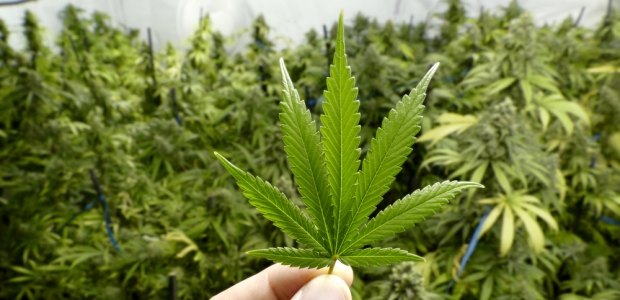
No Change in U.S. Stance on Marijuana
Two governors sought to remove marijuana from Schedule I and reschedule it as medical cannabis in Schedule II, asserting it has an accepted medical use in the United States, is safe for use under medical supervision, and has a relatively low potential for abuse, especially in comparison with other Schedule II drugs.
The U.S. Drug Enforcement Administration announced Aug. 11 that it has denied two petitions to reschedule marijuana under the Controlled Substances Act, so it remains a Schedule I controlled substance because it does not meet the criteria for currently accepted medical use in treatment in the United States, there is a lack of accepted safety for its use under medical supervision, and it has a high potential for abuse. DEA simultaneously announced other marijuana- related actions, including a policy change expanding the number of DEA- registered marijuana growers.
DEA reported that it responded to the petitions -- one came from two former governors, Lincoln Chafee of Rhode Island and Linda Gregoire of Washington -- by requesting a scientific and medical evaluation and scheduling recommendation from the Department of Health and Human Services, which was conducted by the U.S. Food and Drug Administration in consultation with the National Institute on Drug Abuse.
The two governors sought to remove marijuana from Schedule I and reschedule it as medical cannabis in Schedule II, asserting it has an accepted medical use in the United States, is safe for use under medical supervision, and has a relatively low potential for abuse, especially in comparison with other Schedule II drugs.
DEA Acting Administrator Chuck Rosenberg sent a letter Aug. 11 to the current governors of both states explaining the denials, and DEA's responses to both petitions have been published in the Federal Register.
"The DEA and the FDA continue to believe that scientifically valid and well-controlled clinical trials conducted under investigational new drug (IND) applications are the most appropriate way to conduct research on the medicinal uses of marijuana. Furthermore, DEA and FDA believe that the drug approval process is the most appropriate way to assess whether a product derived from marijuana or its constituents is safe and effective and has an accepted medical use. This pathway allows the FDA the important ability to determine whether a product meets the FDA criteria for safety and effectiveness for approval," DEA said in its announcement of the decision.
The policy change about expanding the number of registered growers is designed to foster research and should give researchers "a more varied and robust supply of marijuana," according to DEA. "At present, there is only one entity authorized to produce marijuana to supply researchers in the United States: the University of Mississippi, operating under a contract with NIDA. Consistent with the CSA and U.S. treaty obligations, DEA's new policy will allow additional entities to apply to become registered with DEA so that they may grow and distribute marijuana for FDA-authorized research purposes," it stated.
A third action is a statement from the U.S. Department of Agriculture, in consultation with DEA and FDA, concerning provisions of the Agricultural Act of 2014 relating to the cultivation of industrial hemp. "Industrial hemp is a low-concentration THC variety of the cannabis plant intended to be used for industrial purposes (e.g., fiber and seed). This statement of principles is intended to inform the public, including institutions of higher education and State departments of agriculture, how Federal law applies to activities associated with industrial hemp that is grown and cultivated in accordance with Section 7606 of the Agricultural Act of 2014," DEA said in its announcement. "This statement of principles outlines the legalized growing and cultivating of industrial hemp for research purposes under certain conditions, such as in states where growth and cultivation are legal under state law. The 2014 Act did not remove industrial hemp from the list of controlled substances and, with certain limited exceptions, the requirements of the Federal Food, Drug, and Cosmetic Act and the CSA continue to apply to industrial hemp-related activities. The statement of principles addresses questions including the extent to which private parties may grow industrial hemp as part of an agricultural pilot program, the circumstances under which the sale of hemp products is permitted, and other related topics."